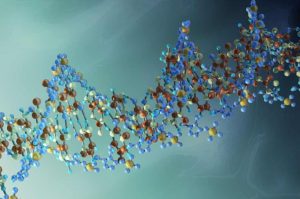By Kris Hermanns and Fred Rivera
It’s been more than two years since COVID-19 hit Seattleand spread throughout the country, grinding life as we knew it to a halt. Now that we’re adjusting to a new normal, we can’t forget the unprecedented levels of inequality rooted in decades of racial and economic inequities in the Puget Sound region.
Before the pandemic, clear disparities in our region existed in access to everything from healthy food and affordable housing to educational opportunities. In King County, data show that Black adults are four times more likely to not have enough food than their white counterparts and Native Americans face the highest poverty rate of any racial group. The pandemic made all of this worse.
When we talk about things going “back to normal,” it isn’t an inspirational promise to many people in the Seattle area, especially Black and Indigenous communities and other people of color. That unappealing normality may be out of reach for people who lost their homes and savings during COVID, or for folks who have been dealing with chronic mental and physical health challenges, suffering through unsafe working conditions or caring for sick loved ones. People don’t bounce back like stock indexes; their stories are tough and complicated.
This is why initiatives like the Fund for Inclusive Recovery are so important. Hosted by Seattle Foundation, this fund was launched last year with the goal of investing in people hit hardest by the pandemic: Black, Indigenous and other communities of color. By bolstering organizations that are rooted in and serve these communities, we can help ensure a more equitable recovery for our region.
This is a collective effort of philanthropy, business and community. The Seattle Mariners were one of the fund’s first investors. As a sports team with a broad and diverse fan base, the Mariners know that long-standing injustices have made it difficult for many people to access the resources they need to thrive. That’s why the organization committed $100,000 to the fund early on. This is part of a broader team pledge to advance racial equity and social justice in our region.
For the past year, a group of leaders from BIPOC communities has led the fund’s efforts to support people recovering from the pandemic, and even more importantly, trying to change the inequitable systems that have kept people trapped in poverty for generations. Earlier this month, the fund announced its first set of grantees.
The Fund for Inclusive Recovery supports groups’ capacities to organize, grow community leadership and engage policymakers. This includes organizations like CHOOSE 180, which aims to redirect young people at risk of involvement with the criminal legal system.
Like recovery, the fund is a long-term effort. In the coming months and years, Seattle Foundation and its philanthropic partners will listen to community insights and provide funds where they’re most needed to change discriminatory systems.
Partners like the Mariners will continue advocating for the work of the fund, which aims to raise $50 million. So far, we have $13 million and we’re confident our community will come together and reach our goal. Supporting those who have been oppressed for decades and born the brunt of this pandemic is crucial if we are to imagine a true, long-term recovery.
Seattle Foundation and the Mariners believe that the Puget Sound region is a place where everyone should thrive. We can’t do this work alone. Through the Fund for Inclusive Recovery and other collective efforts, people from all walks of life can unite to help our community get back to something far better than normal.
Together, we will all rise.
Kris Hermanns is the chief impact officer of Seattle Foundation.
Fred Rivera is executive vice president and general counsel of the Seattle Mariners




